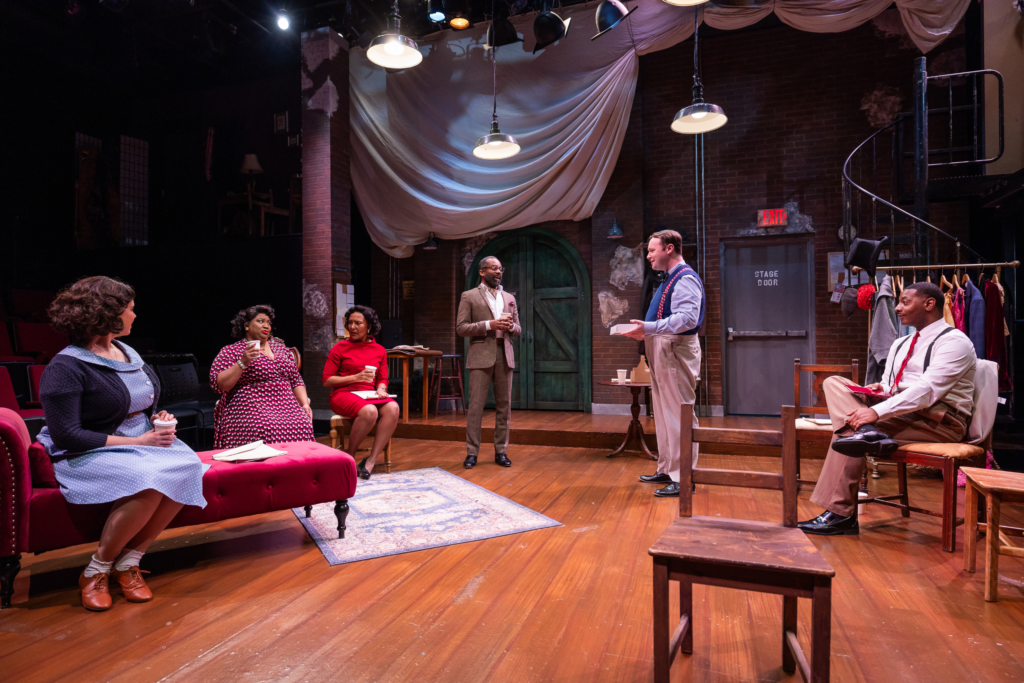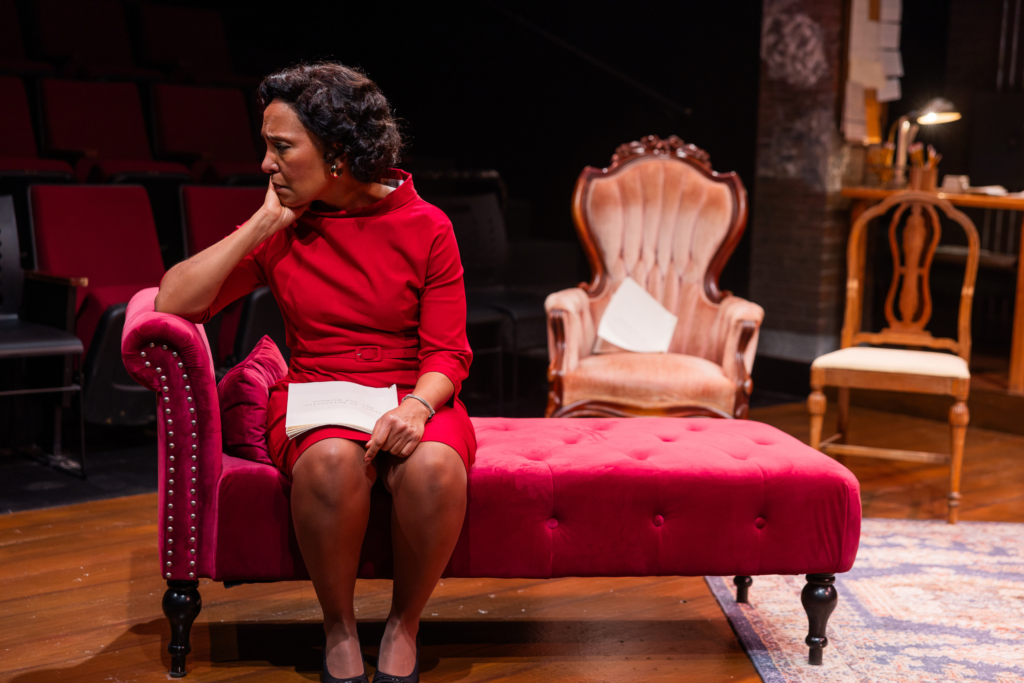
Trouble In Mind by Playwright Alice Childress. Directed by Dawn M. Simmons. Scenic Design by Shelley Barish. Costume Design by Rachel Padula-Shufelt. Lighting Design by Deb Sullivan. Sound Design by Aubrey Dube. At the Lyric Stage Company of Boston, Clarendon Steet, through February 4.
By Linda Chin
In his 1951 poem “Harlem” Langston Hughes poses an important question: What happens to a dream deferred? It continues with additional questions:
Does it dry up like a raisin in the sun?
Or fester like a sore – And then run?
Does it stink like rotten meat?
Or crust and sugar over—like a syrupy sweet?
Maybe it just sags, like a heavy load.
Or does it explode?
In her 1955 play “Trouble in Mind,” Alice Childress (Hughes’ contemporary) tells the story of a group of Black and white actors rehearsing a play for Broadway. The play (within-the-play), “Chaos in Belleville” is an anti-lynching drama written by a white playwright, directed by white male director Al Manners (Barlow Adamson), and stars a Black actress, Wiletta (Patrice Jean-Baptiste), a seasoned actor who will be making her Broadway debut – a long-awaited dream.
When the actors gather for the first rehearsal, Wiletta and John Nevins (Kadahj Bennett), who is also Black, bond over growing up in the same hometown, and Wiletta dispenses advice to the younger, less experienced actor about how to successfully work with white directors and navigate the predominantly white theater industry. Other Black actors in ‘Trouble’ playing Black characters in ‘Chaos’ include Davron S. Monroe as experienced older actor Sheldon Forrester and MaConnia Chesser as the younger actor Millie Davis. Besides Adamson, the white actors in ‘Trouble’ who play white characters in ‘Chaos’ include Allison Beauregard (Yale Drama-trained actor Judy Sears) and Bill Mootos (Judge Bill O’Wray). James Turner plays PSM Eddie Fenton, young, clueless, and deferential, and Robert Walsh, the theater’s doorman, a boozy Irishman.

With a play full of stereotypical characters (maids and mammies), ageism, racism, and sexism infiltrating the rehearsal/workspace, and the director’s insistence that the actors think about their characters, express emotions they don’t feel and rigidly stick to the script, frustrations rise, tempers flare, and trouble ensues. Wiletta expresses her discontent with what she’s experiencing with a monologue towards the end of the play (Trouble in Mind, not part of the script of “Chaos”) that is emotionally rich and representative of what happens to a dream deferred – it’s explosive.
With strong acting by the entire company of Trouble in Mind and balanced direction by Dawn M. Simmons (a Black female), Lyric Stage’s 50th Birthday year, under the leadership of Producing Artistic Director Courtney O’Connor (a white female), is off to a good start. May 2024 be plentiful, with more opportunities than dreams deferred. For tickets and information, go to: https://www.lyricstage.com/

